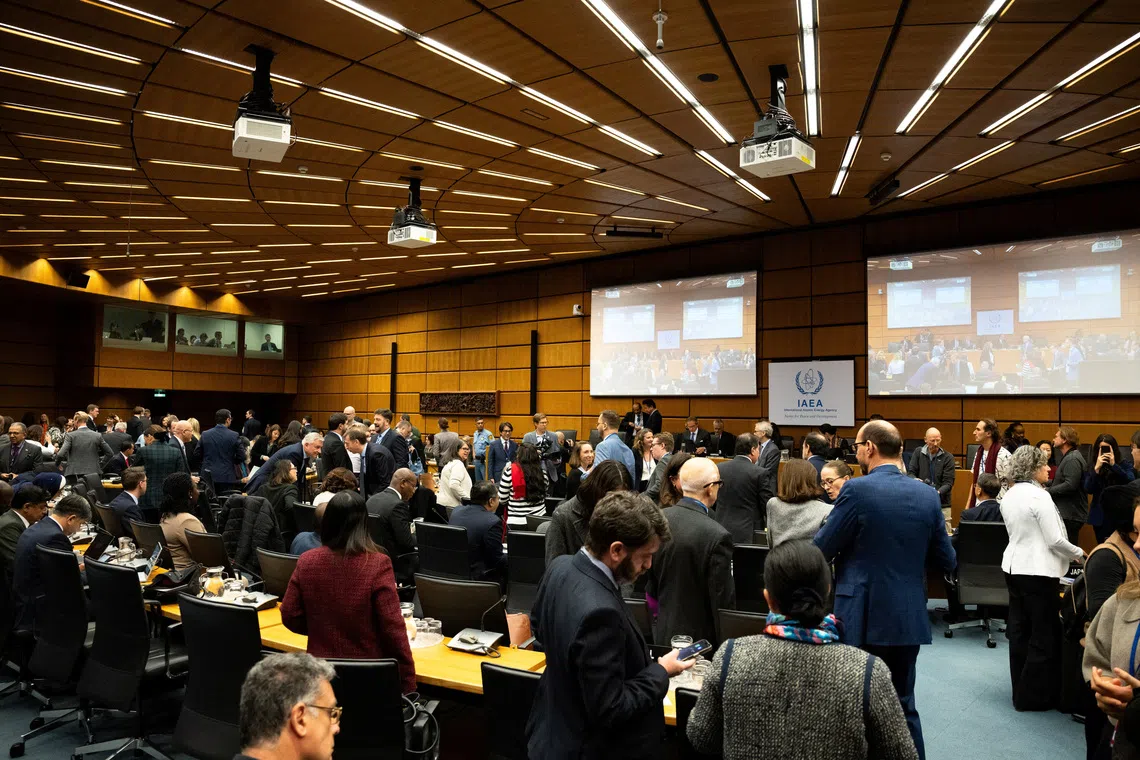The global nuclear watchdog, the International Atomic Energy Agency (IAEA), has issued a stern call to Iran, with its 35-nation Board of Governors recently passing a resolution demanding immediate and comprehensive answers regarding the Islamic Republic's enriched uranium reserves and access to its atomic facilities.
Adopted on Thursday, the resolution emphasizes Iran's obligation to promptly inform the agency about the status of its enriched uranium stock and respond to queries concerning sites that reportedly endured military strikes five months prior by Israel and the United States.
Resolution's Mandate and Iran's Warning
This pivotal resolution primarily aims to refresh and adapt the IAEA's mandate for reporting on Iran's nuclear activities. Crucially, it explicitly states that Tehran must swiftly grant the IAEA the necessary access and information it seeks to conduct its vital verification work. Prior to the resolution being formally submitted by the United States and Europe's leading three powers, Iran had cautioned that its passage would "adversely affect" its ongoing cooperation with the UN agency.
Diplomatic sources from the closed-door Vienna meeting revealed that the resolution garnered significant support, passing with 19 votes in favor. Three nations—Russia, China, and Niger—voted against it, while 12 countries chose to abstain.
Unanswered Questions and Urgent Concerns
A core point of contention highlighted in the resolution is Iran's continued refusal to allow inspectors into the nuclear facilities that were reportedly struck by Israel and the U.S. in June. The IAEA has expressed serious concern, stating that an accurate accounting of Iran's enriched uranium stock is "long overdue" and requires "urgent" attention. This stock includes material enriched to a purity level alarmingly close to weapons grade.
Until Iran provides a comprehensive update on the fate of these bombed facilities—which include three enrichment plants operational at the time of the strikes—the IAEA's ability to inspect them and verify Iran's uranium inventory remains severely hampered.
The Threat of Highly Enriched Uranium
Back on June 13, when Israel reportedly first targeted Iran's nuclear infrastructure, the IAEA estimated Iran possessed 440.9 kg of uranium enriched up to 60% purity. This level is merely a short technical step away from the approximately 90% purity required for weapons-grade material and is in a form easily conducive to further enrichment. According to IAEA metrics, this quantity of uranium, if further refined, could theoretically yield enough material for ten nuclear bombs.
While Iran maintains that its nuclear ambitions are entirely peaceful and that it has the right to enrich uranium to any level it deems necessary for its objectives, Western powers remain deeply skeptical. They argue that there is no credible civilian justification for enriching uranium to such a high purity. The IAEA concurs, labeling the production and storage of such a substantial amount of highly enriched uranium as "a matter of serious concern." The international community awaits Iran's response to these pressing demands for transparency and access.

